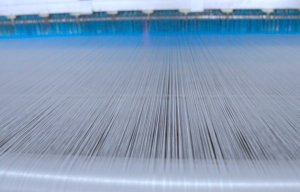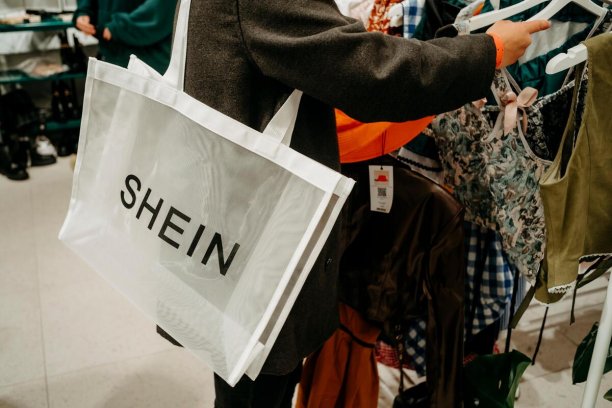
Shein partners with Transfar Chemicals
Call for the EU to hold companies fully responsible for environmental and social exploitation in their supply chains.

30th November 2022
Innovation in Textiles
|
Germany
The ultra-fast-fashion brand Shein has a business model based on hazardous chemicals and environmental destruction, according to a new Greenpeace Germany report.
Product tests on 47 Shein products found that seven of them (15%), contained hazardous chemicals that break EU regulatory limits, with five of the products breaking the limits by 100% or more, while according to the tests a total of 15 of the products contain hazardous chemicals at levels of concern (32%).
The inhuman system of exploitation and destruction by ultra fast fashion should have no place in any industry in the 21st century
Greenpeace Germany bought 42 items, including garments and footwear for men, women, children and infants, from Shein websites in Austria, Germany, Italy, Spain and Switzerland, and five items from a pop-up store in Munich, Germany. The products were sent to independent laboratory BUI for chemical analysis. The findings – which include very high levels of phthalates in shoes and formaldehyde in a baby girl’s dress – prove, according to Greenpeace Germany, Shein’s careless attitude towards environmental and human health risks associated with the use of hazardous chemicals, in pursuit of profit.
Even worse, the report finds that the company, which is headquartered in Nanjing, China, is breaking EU environmental regulations on chemicals and risking the health of consumers and the workers at the suppliers that make the products.
“Greenpeace Germany’s findings show that the use of hazardous chemicals underpins Shein’s ultra fast fashion business model, which is the opposite of being future-proof,” said Viola Wohlgemuth, toxics and circular economy Campaigner with Greenpeace Germany. “Shein products containing hazardous chemicals are flooding European markets and breaking regulations – which are not being enforced by the authorities. But it’s the workers in Shein’s suppliers, the people in surrounding communities and the environment in China that bear the brunt of Shein’s hazardous chemical addiction. At its core, the linear business model of fast fashion is totally incompatible with a climate-friendly future – but the emergence of ultra fast fashion is further accelerating the climate and environmental catastrophe and must be stopped in its tracks through binding legislation. Alternatives to buying new must become the new norm.”
In the last couple of years Shein has grown exponentially through marketing thousands of new designs every day to young people and even children via social media, and then producing them in under a week in a network of up to thousands of suppliers in China, even undercutting its competitors with the speed of its production and with its ultra cheap, low quality and disposable products. Its new ultra fast fashion business model takes the extremes of overconsumption even further in its creation of textile waste, and frequent reports of exploitation of workers and the environment in its supply chain.
REACH
EU regulations on hazardous chemicals in imported products set strict concentration limits under the REACH Regulation for a range of hazardous substances in clothing, accessories and shoes sold in Europe. A loophole which excluded imported products from these requirements was closed after evidence from Greenpeace’s Detox My Fashion campaign showed how the use of hazardous chemicals by textiles suppliers in global south countries was also leading to water pollution in the EU. Hazardous chemicals in clothes are also a major barrier to textiles recycling.
“Greenpeace is calling for the EU to enforce its laws on hazardous chemicals – which are a basic requirement for achieving a circular textiles economy and the end of fast fashion, as set out in the EU’s own Textiles Strategy,” said Wohlgemuth. “But the EU’s proposals also need to take on the inhuman system of exploitation and destruction by ultra fast fashion that should have no place in any industry in the 21st century, by holding companies fully responsible for environmental and social exploitation in their supply chains and the impacts from fashion waste. This also needs to be urgently addressed through a global treaty, similar to the recently agreed UNEA plastics treaty that is currently being discussed, to finally tackle the giant fashion footprint.”
The fast fashion business model is notorious for the huge volumes of oil-based clothes that are produced, the speed they are brought to market, and for stories of outsize environmental and social impacts. According to industry sources, less than 1% of textiles are made from old textiles, but every second, a truckload of textiles ends up in landfills or is incinerated. The most visible of these problems is the vast quantity of polluting textile waste increasingly being shipped to East Africa and other global south countries, as recently reported by Greenpeace Germany.
This latest evolution of fast fashion forces suppliers to deliver at breakneck speed, with Shein’s orders repeatedly made three times as fast as its nearest rival Zara – and delivered direct to customers around the world by air freight. Greenpeace Germany says in its report that Shein’s business model relies on the lack of enforcement of regulations designed to protect the environment, and the health and safety of workers and consumers, as the company routinely violates regulations.

Business intelligence for the fibre, textiles and apparel industries: technologies, innovations, markets, investments, trade policy, sourcing, strategy...
Find out more